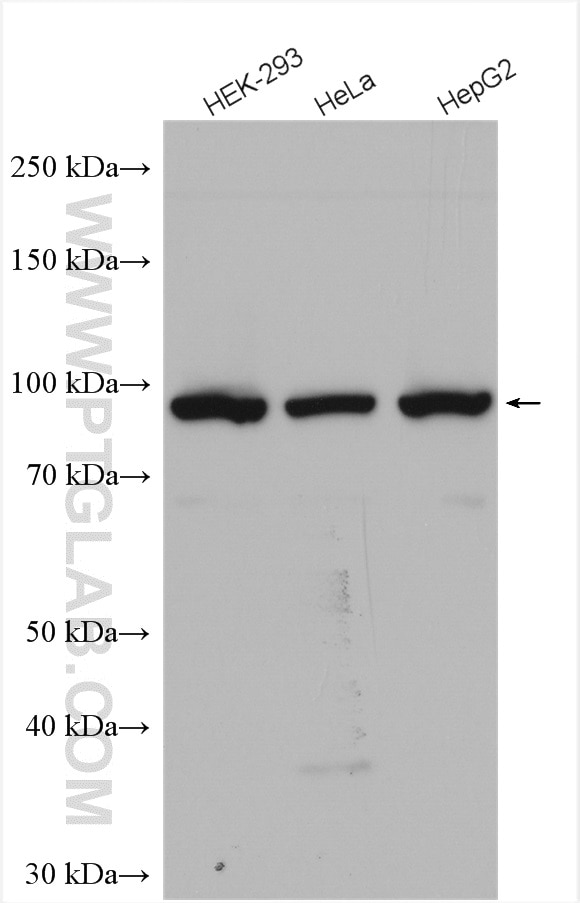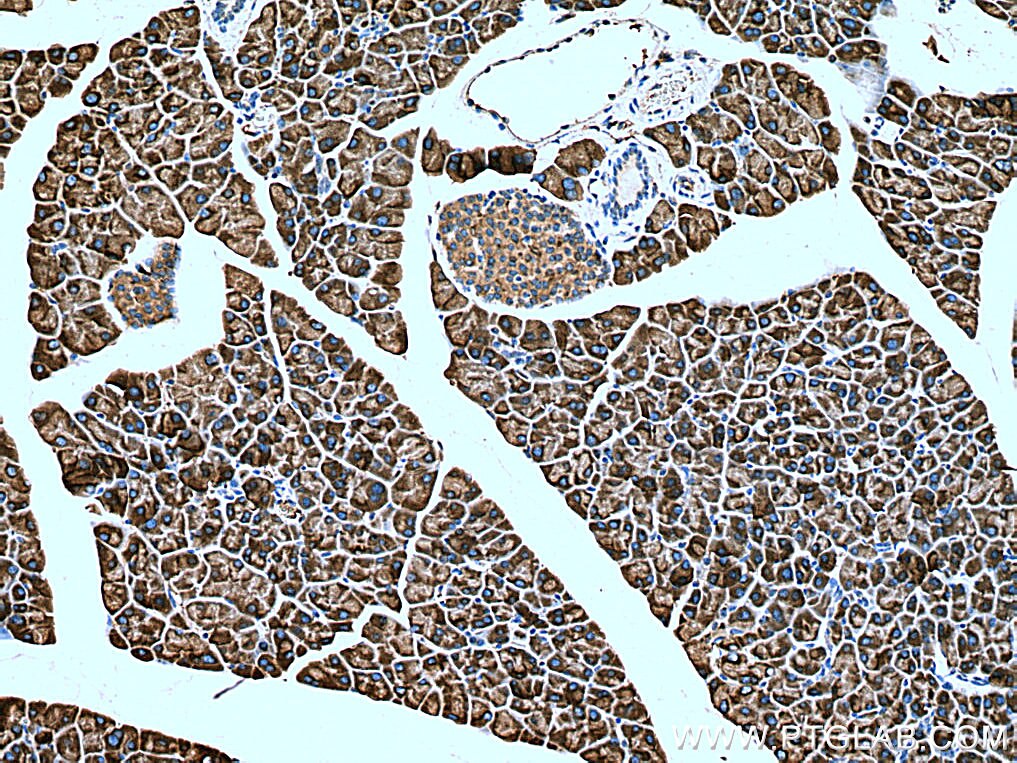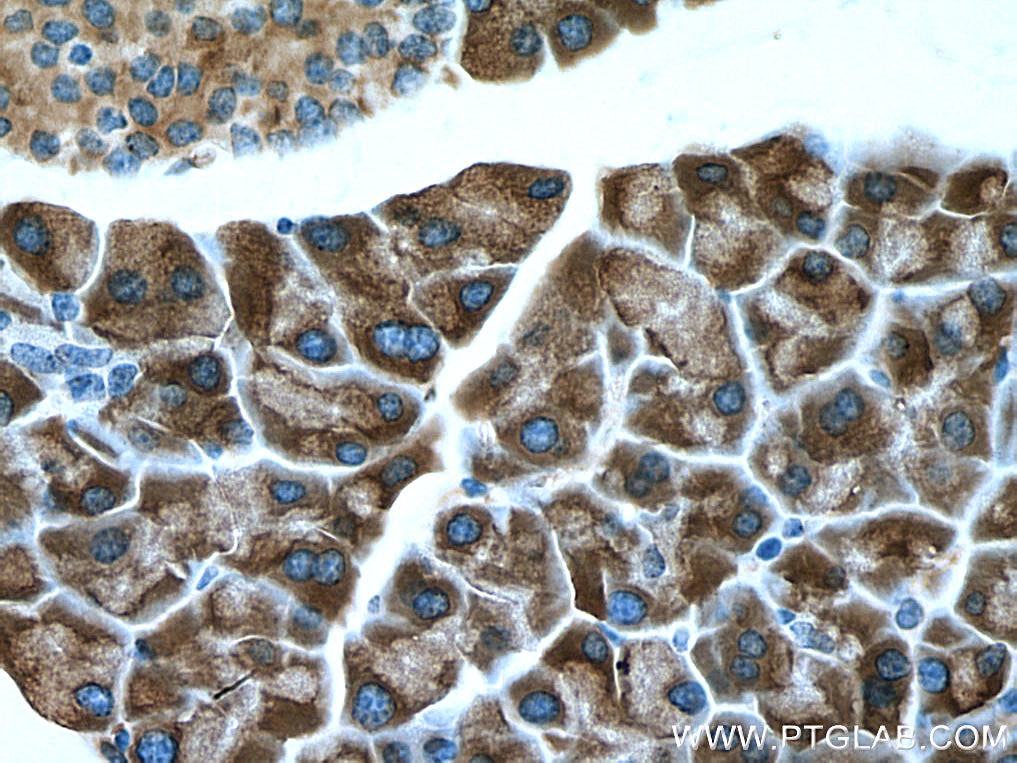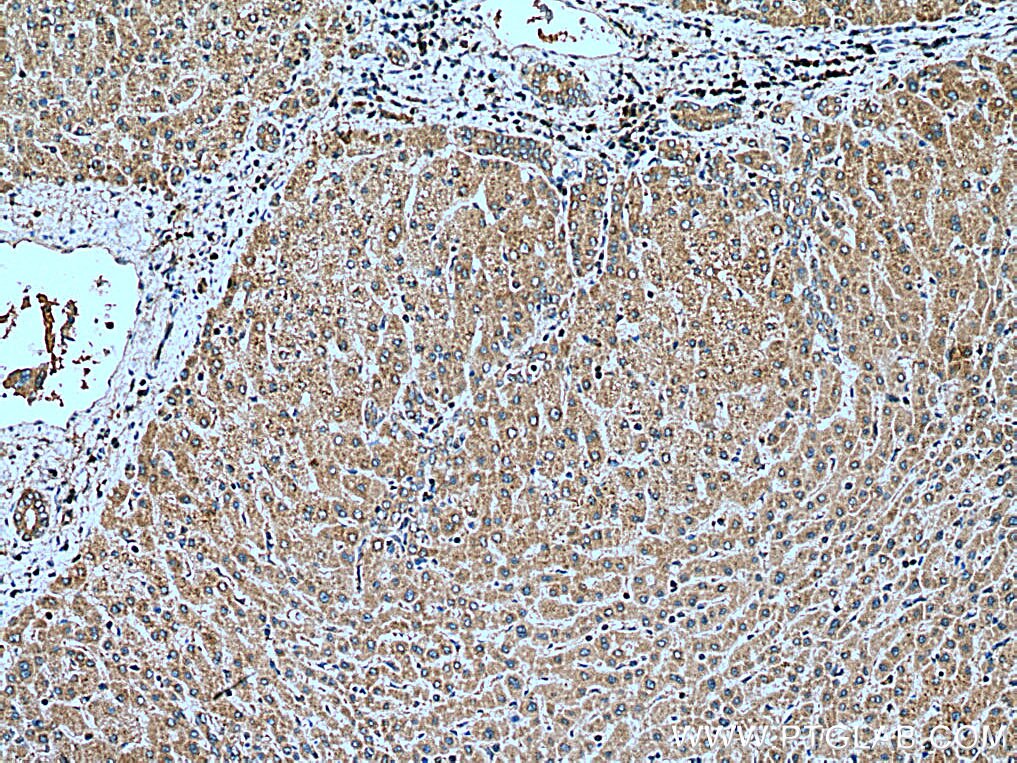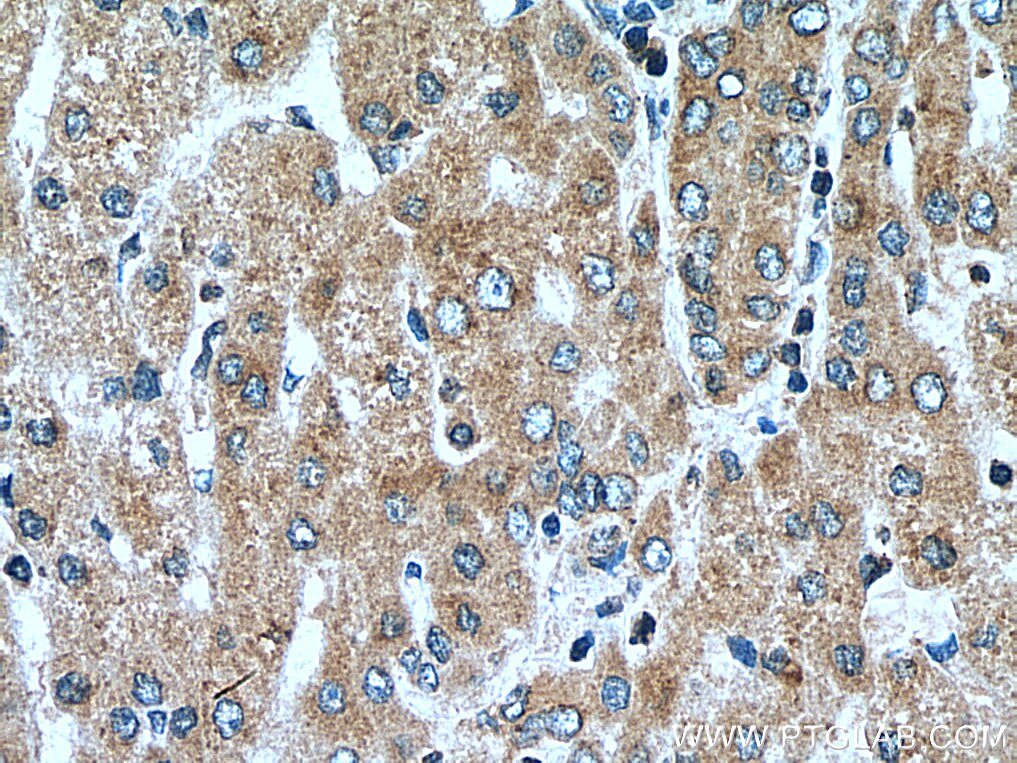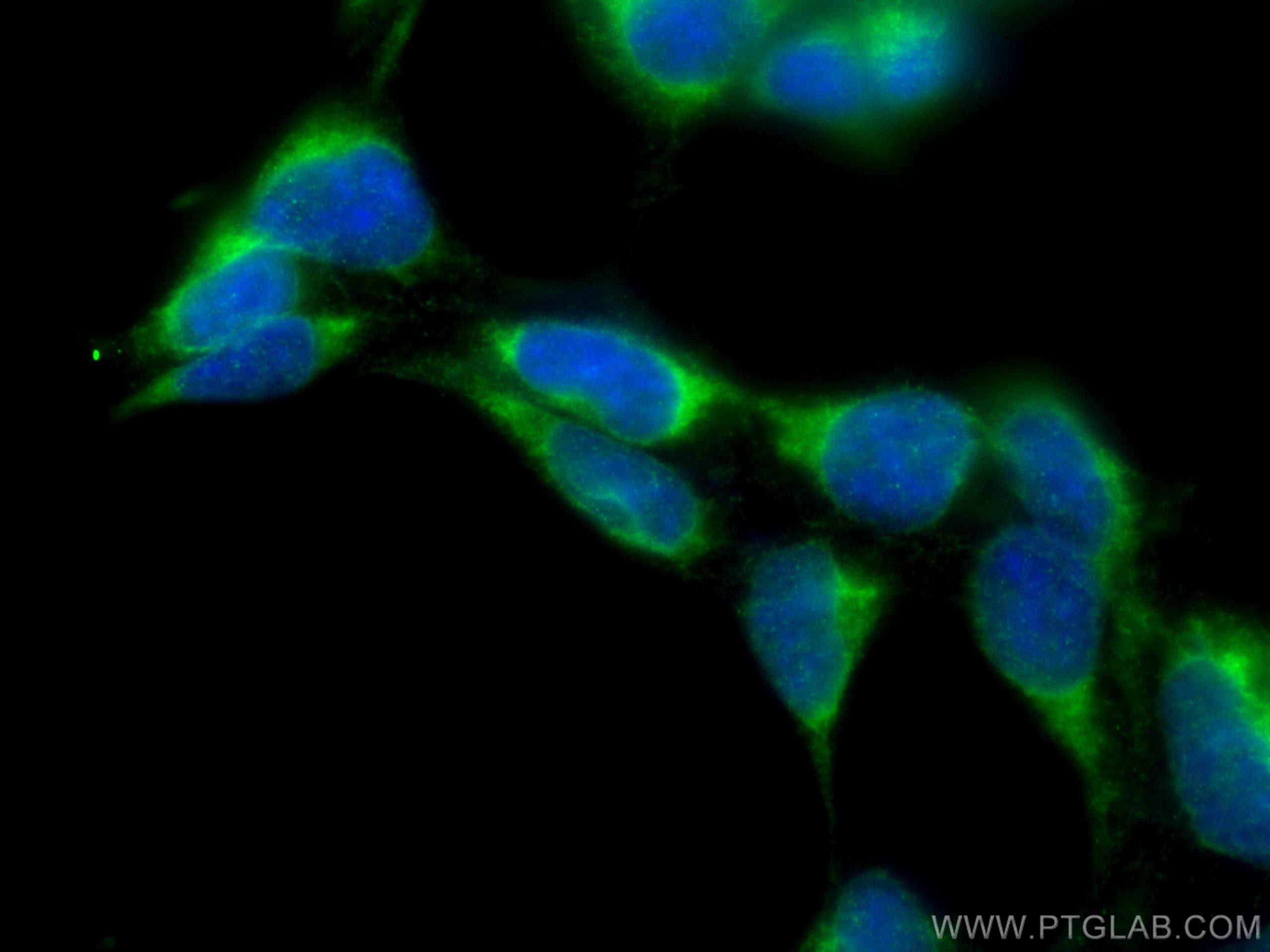Anticorps Polyclonal de lapin anti-SEC63
SEC63 Polyclonal Antibody for WB, IHC, IF/ICC, ELISA
Hôte / Isotype
Lapin / IgG
Réactivité testée
Humain, souris
Applications
WB, IHC, IF/ICC, ELISA
Conjugaison
Non conjugué
N° de cat : 28665-1-AP
Synonymes
Galerie de données de validation
Applications testées
| Résultats positifs en WB | cellules HEK-293, cellules HeLa, cellules HepG2 |
| Résultats positifs en IHC | tissu pancréatique de souris, tissu hépatique humain il est suggéré de démasquer l'antigène avec un tampon de TE buffer pH 9.0; (*) À défaut, 'le démasquage de l'antigène peut être 'effectué avec un tampon citrate pH 6,0. |
| Résultats positifs en IF/ICC | cellules HEK-293, |
Dilution recommandée
| Application | Dilution |
|---|---|
| Western Blot (WB) | WB : 1:2000-1:12000 |
| Immunohistochimie (IHC) | IHC : 1:50-1:500 |
| Immunofluorescence (IF)/ICC | IF/ICC : 1:200-1:800 |
| It is recommended that this reagent should be titrated in each testing system to obtain optimal results. | |
| Sample-dependent, check data in validation data gallery | |
Informations sur le produit
28665-1-AP cible SEC63 dans les applications de WB, IHC, IF/ICC, ELISA et montre une réactivité avec des échantillons Humain, souris
| Réactivité | Humain, souris |
| Hôte / Isotype | Lapin / IgG |
| Clonalité | Polyclonal |
| Type | Anticorps |
| Immunogène | SEC63 Protéine recombinante Ag30213 |
| Nom complet | SEC63 homolog (S. cerevisiae) |
| Masse moléculaire calculée | 88 kDa |
| Poids moléculaire observé | 90 kDa |
| Numéro d’acquisition GenBank | BC047221 |
| Symbole du gène | SEC63 |
| Identification du gène (NCBI) | 11231 |
| Conjugaison | Non conjugué |
| Forme | Liquide |
| Méthode de purification | Purification par affinité contre l'antigène |
| Tampon de stockage | PBS with 0.02% sodium azide and 50% glycerol |
| Conditions de stockage | Stocker à -20°C. Stable pendant un an après l'expédition. L'aliquotage n'est pas nécessaire pour le stockage à -20oC Les 20ul contiennent 0,1% de BSA. |
Informations générales
SEC63 is a integral ER membrane protein. SEC63 and SEC62 form a dimeric complex and play a central role in translocation of nascent and newly synthesized precursor polypeptides into the ER. Mutations in the gene encoding SEC63 cause polycystic liver disease in humans. The intact SEC63 protein is usually detected around 83-90 kDa, while smaller cleavage products can be observed by autophagy proteolysis (PMID: 25052096)
Protocole
| Product Specific Protocols | |
|---|---|
| WB protocol for SEC63 antibody 28665-1-AP | Download protocol |
| IHC protocol for SEC63 antibody 28665-1-AP | Download protocol |
| IF protocol for SEC63 antibody 28665-1-AP | Download protocol |
| Standard Protocols | |
|---|---|
| Click here to view our Standard Protocols |
